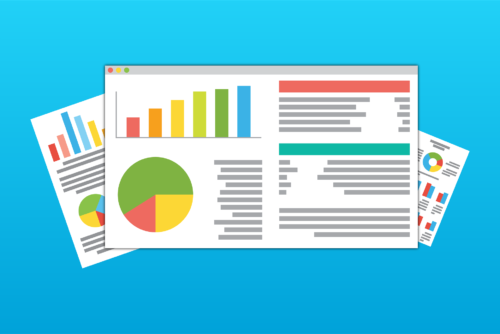PHX Perspectives | October 26th, 2020
With a wide array of nonprofits, healthcare facilities, and pharmaceutical companies, Boston is a hub for research and innovation. Whether it is at Boston Health Care for the Homeless, Boston Medical Center or Agios Pharmaceuticals, data drives decision-making. Effective data visualization empowers decision makers to grasp difficult concepts or identify new patterns. This summer, Population Health Exchange launched From Data to Dashboards: Using Excel to support health program decisions as part of the 2020 PHX Virtual Summer Institute.
A data dashboard, as defined by Stephen Few, is a visual display of the most important information needed to achieve one or more objectives; consolidated and arranged on a single screen so the information can be monitored at a glance. More than ever before, managers need to make sound decisions based on data. Robust dashboards are important tools in this process.
In Data to Dashboards, participants learned to apply useful formulas, graphing techniques, and data analysis to build their own dashboards. Elizabeth Lewis, MBA, an experienced Data Analyst at Boston Health Care for the Homeless Program as well as an Adjunct Assistant Professor at Boston University School of Public Health, developed the online modules and facilitated the weekly live-online sessions. While Lewis originally developed this course as an elective for the Master of Public Health degree program at BUSPH and has been teaching it for years, she was excited to bring it online for the first time as a PHX program. It allowed her to share her passion and expertise for data analysis with participants who might not be able to take the credit course as part of a longer program, such as working professionals.
Ian Lemieux, Associate Director of Clinical Operations at Agios Pharmaceuticals, learned about this course through a friend and decided to enroll to learn data analysis, visualization, and effective data presentation techniques. After the first week of the course, he reportedly was able to apply learnings to his own work.
“I was impressed at the value of the content, the quality of the instruction, and the practicality of it all. Clinical research operations involve many different types of data, and being able to efficiently analyze, organize, and present information is an invaluable skill,” Lemieux said.
Masis Parunyan, a medical student at Boston University School of Medicine, learned about the course through a school newsletter and decided to enroll after struggling with a project that required him to handle large amounts of data.
“I found myself with lots of questions about how to manage my data, without very many answers. I knew that there is a lot you can do with Excel but had never learned how to fully utilize it. I am very much interested in data science, informatics, and how to harness data to help inform our decisions,” he reported. Parunyan plans to apply the new skill set he developed to his current and future data analysis and management projects. “I think it’s impossible to ignore the importance of data in our world today. It’s here to stay, and there is so much potential for it to help guide our decisions in the right ways if only we learn to handle it appropriately,” he concluded.
Sherry Roberts, Sr. Director of Data Management at Agios Pharmaceuticals, learned about the class from her colleague Lemieux. “I was able to take many of the things that I was learning and apply them to my work immediately. I am much more efficient with spreadsheets now and understand some of the best practices to present data more effectively as data dashboards. [Elizabeth Lewis] was very accessible and willing to help.” When asked for advice to future students, Roberts shared “this is a great course, if you use spreadsheets to track or manage data you will benefit from it enormously. I learned easy small lessons that save me hours of time now because I can use functions that I did not even know existed.”
Students developed their own data dashboards using COVID-19 trends data. Lewis was impressed with the quality of the work delivered and excited to see how students will take what they learned to communicate using data more effectively in their respective roles.
You can view one of the dashboards developed during the program by downloading the file here.


